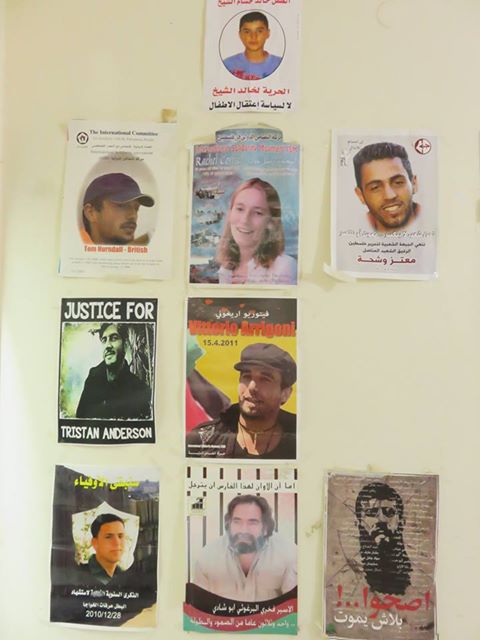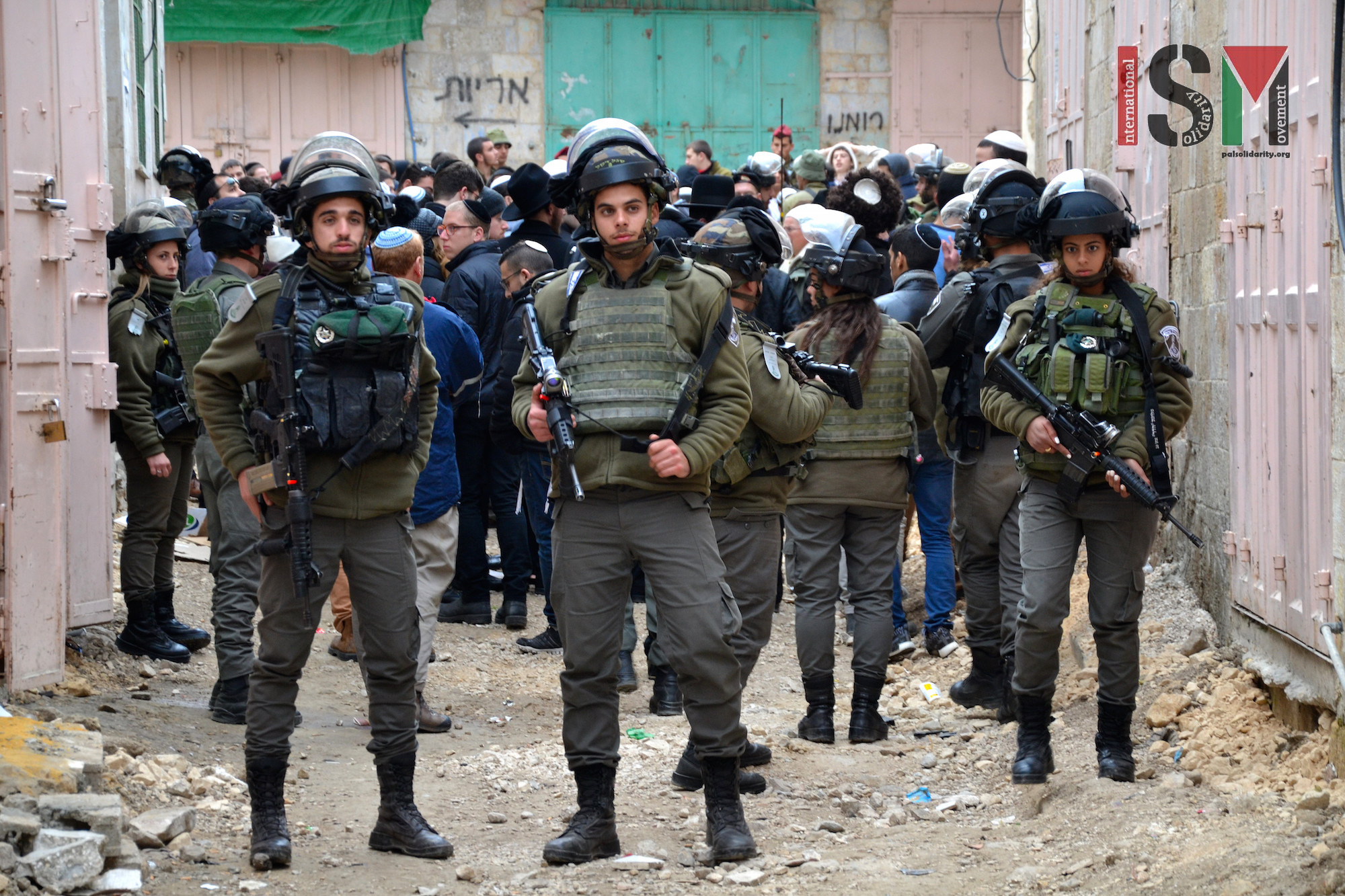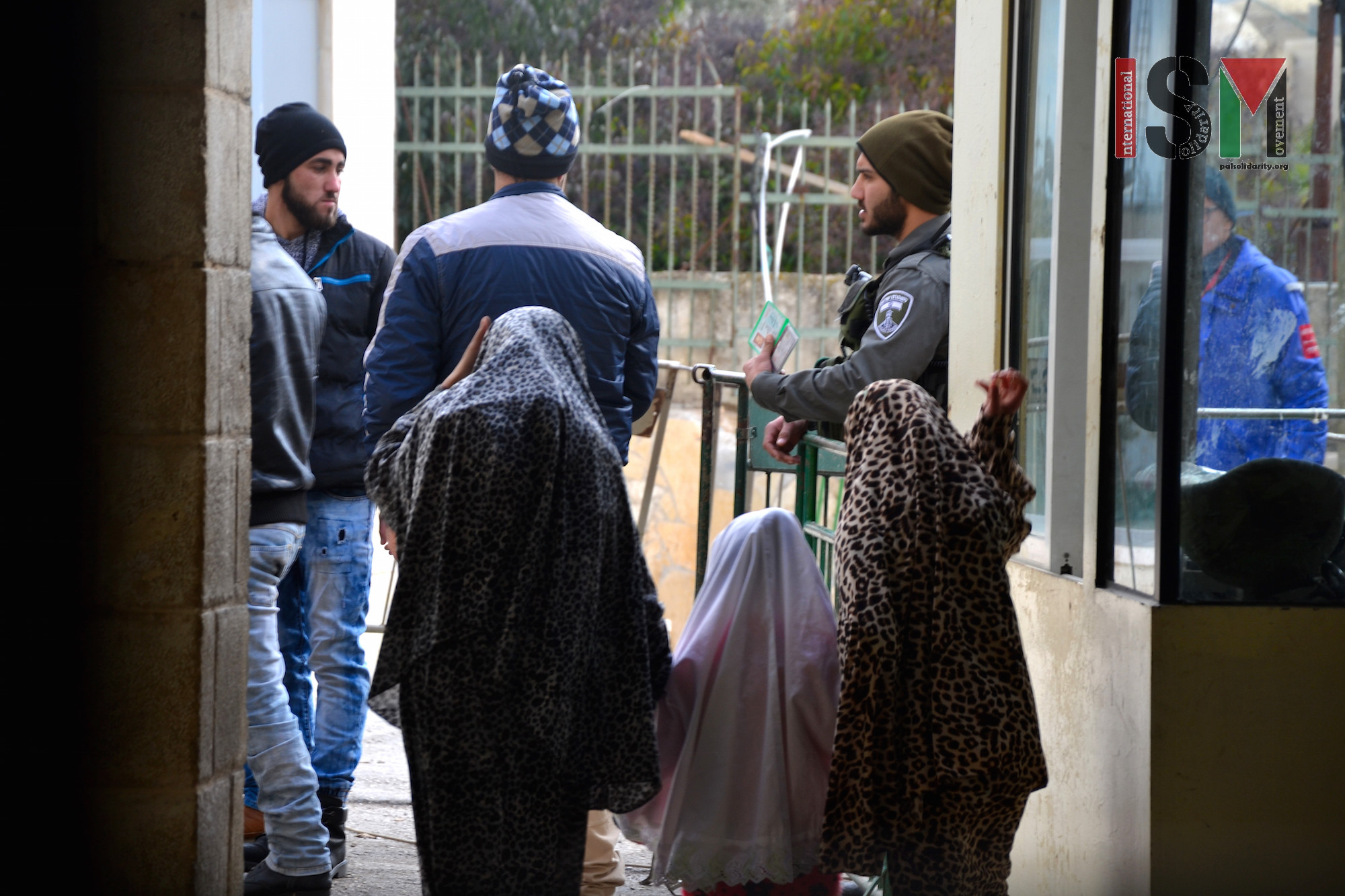Author: ISM Media
-
Remembering Tom Hurndall
16th January 2017 | International Solidarity Movement, ISM Australia | Gaza, occupied Palestine It’s 13 years since Tom Hurndall, a British activist with ISM, was shot in the head while trying to carry a small boy away from a conflict zone in Gaza. His face was among a wall of martyrs I saw on arrival…
-
Israeli Forces escorting Israeli colonial settlers through Palestinian neighbourhood
14th January 2017 | International Solidarity Movement, al-Khalil team | Hebron, occupied Palestine On the 14th of January, 2017, some 120 Israeli colonial settlers were escorted through the Old City by approximately 50 Israeli soldiers and Border Police, in occupied Hebron (al-Khalil). Escorted by countless soldiers from one end of the military base to the other,…
-
Friday Noon Prayer, Hebron (al-Khalil): Oppression, harassment and discrimination
13th January 2017 | International Solidarity Movement, al-Khalil team | Hebron, occupied Palestine On Friday the 13th of January, during the Friday noon prayer at the Ibrahimi Mosque in occupied Hebron (al-Khalil), large numbers of Palestinians were delayed on their way to the prayer, and subjected to ID checks, bag searches and random detainments, carried…



